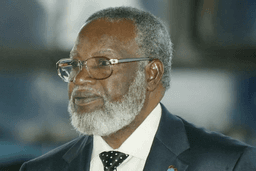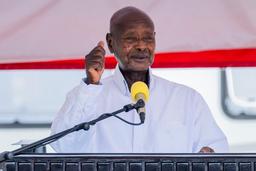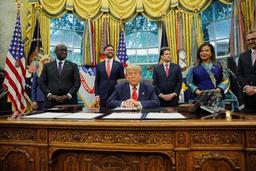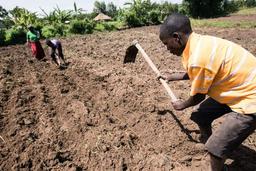Niger
Niger is a landlocked country in West Africa, bordered by Libya, Chad, Nigeria, Benin, Burkina Faso, Mali, and Algeria. It has a population of about 25 million people. The country covers roughly 1.27 million square kilometers, mostly desert and semi-arid regions of the Sahara. Niger operates on West Africa Time (UTC +1). The two major languages are French (official) and Hausa. Its currency is the West African CFA franc (XOF). The main religions are Islam (predominantly Sunni) and traditional African beliefs. The country is led by a president as head of state.


25 million (2025)

West Africa

1.27 million sq km

West Africa Time, UTC +1

French, Hausa

West African CFA franc (XOF)

Islam, African Traditional Beliefs

General Abdourahamane Tchiani
Brief
Niger is a vast landlocked country located in the heart of West Africa, covering approximately 1.27 million square kilometers. The majority of its territory lies within the Sahara Desert and the Sahel, characterized by arid and semi-arid landscapes, which heavily influence its climate and agricultural practices. Despite its harsh environment, Niger supports a population of around 25 million people, making it one of the most sparsely populated countries on the continent.
The country’s demographic composition is diverse, with several ethnic groups including the Hausa, Zarma-Songhai, Tuareg, and Fulani communities. French serves as the official language, a legacy of colonial history, while Hausa is widely spoken as a lingua franca, particularly in the southern regions. Islam, predominantly Sunni, is the major religion practiced by the vast majority, alongside traditional African spiritual beliefs.
Economically, Niger faces numerous challenges largely due to its landlocked position, climatic conditions, and limited infrastructure. Agriculture and livestock remain the backbone of the economy, employing the majority of the population. The country also has significant natural resources, including uranium one of its main exports and other minerals such as coal and gold, which contribute to the mining sector.
Politically, Niger has experienced instability, including recent military coups. As of 2025, the country is governed by President General Abdourahamane Tchiani, who came to power following a coup in 2023. His leadership marks a transitional period focused on restructuring the government and addressing security concerns, particularly due to rising jihadist violence in border regions.
Niger operates on West Africa Time (UTC +1) and uses the West African CFA franc (XOF) as its currency, which is shared with several neighboring countries. Despite facing significant development hurdles, Niger remains an important player in regional politics and security efforts in the Sahel, balancing traditional cultural heritage with modern governance challenges.
Photos




National Anthem
Cultural Life
Cultural milieu
Niger’s cultural milieu is a vibrant tapestry woven from the diverse ethnic groups that inhabit the country, including the Hausa, Zarma-Songhai, Tuareg, Fulani, Kanuri, and Toubou. Each group contributes unique traditions, languages, clothing styles, music, and ceremonies to the national identity. Oral storytelling, traditional dance, and music especially those featuring drums, the hoddu (a stringed instrument), and tende rhythms play central roles in community life and celebrations. Islam, practiced by the majority, deeply influences social norms, festivals, and daily customs. Despite modern influences, traditional practices such as artisan crafts, nomadic lifestyles (particularly among the Tuareg and Fulani), and seasonal festivals continue to thrive, reflecting Niger’s deep-rooted heritage and communal spirit.
Daily life and social customs
Daily life and social customs in Niger are deeply shaped by tradition, religion, and community values. Most people live in rural areas and engage in agriculture or herding, with daily routines revolving around farming, tending livestock, or local trade. Social life is often communal, with extended families living together and neighbors sharing resources and responsibilities. Respect for elders, hospitality, and greetings are central to interpersonal interactions elaborate greetings are common and expected, especially in Hausa and Zarma communities. Islam guides much of the social conduct, influencing dress, dietary practices, gender roles, and observance of prayers and festivals like Ramadan and Eid. Markets serve as vital social and economic hubs, while storytelling, music, and dance remain key cultural expressions in both urban and rural settings.





cuisine
Nigerien cuisine is simple yet hearty, reflecting the country’s Sahelian environment and traditional way of life. Staple foods include millet, sorghum, rice, and maize, often prepared as porridge or flatbread. A popular dish is tuwo or fufu, a thick millet paste typically served with spicy sauces made from vegetables, meat, or dried fish. Goat, beef, chicken, and occasionally camel are consumed, though meat is usually reserved for special occasions. Common ingredients in sauces include okra, tomatoes, onions, and local spices. One of the national dishes is djerma stew, made with meat, vegetables, and sometimes peanut sauce. Tea drinking, especially strong green tea prepared in three rounds, is a key social ritual, particularly in northern regions influenced by Tuareg and Fulani cultures. Meals are often communal, eaten from a shared bowl with the right hand, reflecting the strong sense of family and hospitality in Nigerien society.




Music
Music in Niger is a rich blend of ethnic traditions, storytelling, and rhythm, deeply rooted in the country’s diverse cultural heritage. Each major ethnic group has its own musical styles and instruments. The Hausa people are known for energetic drumming, praise songs, and the use of instruments like the kalangu (talking drum). The Tuareg, famed for their desert blues, use the imzad (a bowed instrument) and tende (drum) in hypnotic, chant-like performances that often feature themes of nomadic life and resistance. Among the Zarma-Songhai, griot traditions preserve oral histories through poetic songs accompanied by instruments such as the molo (lute). Modern Nigerien music also incorporates contemporary genres like hip hop, reggae, and Afrobeat, often blending them with traditional sounds. Artists like Mamane Barka, who revived the biram (a sacred boat-shaped instrument), have brought Niger’s musical heritage to the global stage. Music remains central to ceremonies, festivals, and daily life, serving both as entertainment and a means of preserving identity.
Tuareg Desert Blues / Rock
This is the most internationally recognized genre from Niger. It blends traditional Tuareg melodies with electric guitar-driven blues and rock. Lyrics often reflect themes of exile, identity, and desert life.
Zarma/Songhai Urban Pop
In Niamey and other urban centers, Zarma/Songhai musicians produce urban pop music blending traditional instruments with modern beats, often featuring storytelling, love songs, and social commentary.
Hip Hop and Rap Nigerien
Since the 2000s, Hip Hop Nigerien has grown rapidly among the youth, used as a tool for political expression, education, and identity. Lyrics are often in French, Hausa, Zarma, and Tamasheq.
The arts
The arts and crafts of Niger are deeply intertwined with the country’s ethnic diversity and traditional way of life, showcasing both functional and decorative expressions of culture. Tuareg artisans are especially renowned for their intricate silver jewelry, leatherwork, and finely engraved swords, reflecting nomadic heritage and Islamic geometric design. In the southern regions, Hausa and Zarma communities produce vibrant pottery, woven mats, dyed textiles, and elaborately decorated calabashes used for daily chores and rituals. Weaving and basketry, often done by women, are widespread and serve both utilitarian and aesthetic purposes. Wood carving, particularly in rural areas, is used to create stools, tools, and ceremonial masks. Traditional crafts are passed down through generations and often linked to social identity, status, and storytelling. Despite modern influences, these crafts continue to thrive in local markets and cultural festivals, representing Niger's artistic resilience and rich cultural identity.




People
Ethnic groups
Niger is home to a mosaic of ethnic groups, each contributing to the country's cultural richness and social fabric. The largest group is the Hausa, who make up about half the population and are predominantly found in the south; they are known for their strong trade networks, Islamic scholarship, and vibrant cultural traditions. The Zarma-Songhai, primarily located in the west around the capital Niamey, are the second-largest group and are traditionally farmers and fishermen. The Tuareg, a nomadic Berber people, inhabit the arid northern regions and are known for their camel caravans, desert lifestyle, and distinctive indigo-dyed clothing. The Fulani (or Peulh), widespread across the Sahel, are mainly pastoralists and are known for their mobility and strong oral traditions. The Kanuri, found near Lake Chad in the east, have a long history of Islamic empires and scholarship. Other smaller groups include the Toubou, Gurma, and Arab minorities. Despite ethnic diversity, most of Niger’s groups are united by Islam and shared Sahelian traditions.

Religions
The dominant religion in Niger is Islam, practiced by over 98% of the population, mostly adhering to the Sunni branch, with Sufi brotherhoods like the Tijaniyya and Qadiriyya playing a significant spiritual and social role. Islamic practices deeply influence Nigerien daily life, culture, dress, education, and legal customs. Christianity is practiced by a small minority, mainly in urban centers like Niamey, and includes both Roman Catholics and various Protestant denominations. There are also small communities who follow indigenous traditional beliefs, especially in remote rural areas, where ancestral worship, spirit rituals, and nature-based practices persist alongside Islam. Niger’s constitution guarantees religious freedom, and the country is generally known for religious tolerance and peaceful coexistence among different faiths, though Islamic values remain central to national identity.

Demographic trends
Niger is experiencing one of the fastest population growth rates in the world, with around 27 million people in 2025 and an annual growth rate of about 3.3%. The country has a very young population, with nearly half under the age of 15 and a median age of just 15.6 years. High fertility rates averaging nearly six children per woman are driven by cultural norms such as early marriage and limited access to family planning. Most people live in rural areas, and life expectancy is gradually improving, currently around 61 years and expected to rise in the coming decades. This youthful demographic presents both challenges, such as pressure on education, healthcare, and jobs, and potential opportunities for economic growth if investments are made in health, education, and employment to harness a future demographic dividend.

Touristic Cities
Niamey City
As the capital and largest city, Niamey lies along the Niger River and serves as the cultural and political heart of the country. It hosts key attractions like the National Museum, vibrant markets, and traditional architecture, offering insight into Nigerien life and heritage.
Agadez centre
Located in the Sahara, Agadez is famous for its ancient mud-brick mosque, historic caravan routes, and Tuareg culture. It’s a UNESCO World Heritage Site and a gateway for desert excursions, camel caravans, and traditional festivals

Zinder City
Once the capital of Niger, Zinder features a rich history reflected in its old sultanate palaces, colorful markets, and Hausa architecture. It remains an important cultural hub in the south, blending traditional and colonial influences.
Accommodations
Guest houses
Guest houses in Niger are modest, affordable accommodations often found in cities and popular towns. They provide basic amenities and a more personal, local experience compared to larger hotels. Many are family-run, offering simple rooms, local cuisine, and a chance to connect with Nigerien culture. They’re especially common in Niamey and tourist areas near cultural sites or national parks.




Hotels and Resorts
Hotels and resorts in Niger range from basic to mid-range, mostly concentrated in Niamey and a few key cities. They offer essential comforts like air conditioning, Wi-Fi, and restaurants but are generally simple compared to international standards. Resorts are rare but usually found near natural attractions or along the Niger River, catering mainly to regional tourists and business travelers. Luxury options are limited due to the country’s developing tourism infrastructure.




Campings
Camping options in Niger are limited and mostly informal, often near natural attractions like national parks or desert areas. Facilities are basic, with few organized campsites offering minimal services such as water and shelter. Camping is popular among adventurous travelers and those exploring the Sahara or cultural festivals, but safety and logistics require careful planning.




Requirements for Visa
Requirements for Visa
- Valid passport with at least 6 months remaining and blank pages.
- Completed and signed visa application form.
- Two recent passport-sized photos.
- Yellow fever vaccination certificate mandatory.
- Proof of accommodation or host invitation.
- Travel itinerary including return tickets.
- Proof of sufficient funds for stay.
- Visa application fee payment receipt.
- Apply at nearest Niger embassy or consulate.
- Processing time usually 2–3 weeks recommended.
- Tourists visa valid up to 1 month, usually single-entry.
- Visa on arrival possible at Niamey airport and some borders with similar requirements.
At the time of visa issuance, please provide the following documents
- Original valid passport
- Visa approval letter or receipt
- Yellow fever vaccination certificate
- Proof of accommodation or invitation letter
- Return or onward travel tickets
- Proof of sufficient funds
- Recent passport-sized photos
- Any additional documents requested by the embassy or consulate
Economy of Niger
Agriculture, forestry, and fishing
Agriculture, forestry, and fishing form the backbone of Niger’s largely rural economy, employing the majority of its population. Subsistence farming dominates, with millet, sorghum, cowpeas, and maize as staple crops adapted to the country’s arid Sahelian climate. Livestock rearing including cattle, goats, sheep, and camels is vital for food, income, and cultural traditions, especially among nomadic groups like the Tuareg and Fulani. Forestry resources are limited due to desertification, but trees such as acacia are important for fuelwood, shade, and soil protection. Fishing, mainly practiced along the Niger River and its tributaries, provides a critical protein source for communities, though it remains small-scale and vulnerable to environmental changes. Overall, these sectors face challenges from climate variability, land degradation, and limited infrastructure, but they remain essential for livelihoods and food security.

Resources and power
Niger’s natural resources are abundant, with uranium being the most significant export, making the country one of the world’s top producers. Other mineral resources include coal, gold, and oil, though these are less developed. Despite rich resources, Niger faces challenges in harnessing energy, with much of the population lacking access to reliable electricity. The country relies heavily on fossil fuels and hydropower from the Niger River, but renewable energy projects like solar power are gaining momentum to address energy deficits and promote sustainable development. Improving energy infrastructure is key to boosting economic growth and improving living standards.

Manufacturing
Niger's manufacturing sector remains a modest contributor to its economy, accounting for approximately 7.18% of GDP in 2023. The sector's output reached $1.21 billion in 2023, reflecting an 11.81% increase from the previous year. Despite this growth, challenges such as high production costs, limited access to credit, and inadequate infrastructure hinder further development. The government aims to enhance the sector's contribution to GDP to 10.8% by 2030 and 14.8% by 2043 through strategic investments and policy reforms. Key industries include food processing, cement production, and textiles, with potential for growth in agro-processing and renewable energy technologies.

Finance
Niger’s financial sector faces significant challenges, including limited access to financial services, low credit penetration, and a high proportion of non-performing loans. Bank credit to the private sector is low compared to regional averages, and financial inclusion remains limited, with only a small percentage of adults holding accounts in formal institutions. To address these issues, the government has launched reforms and projects aimed at deepening financial inclusion, particularly targeting vulnerable groups such as women, youth, and rural populations. Despite these efforts, the sector’s development is constrained by low financial literacy, limited digital infrastructure, and the predominance of informal economic activities. Improving the financial sector is essential for mobilizing resources to support economic growth and poverty reduction in Niger.

Labour and taxation
Niger's labor market is predominantly informal, with agriculture employing about 83% of the workforce. The formal sector is limited, and the country faces challenges such as low literacy rates and a shortage of skilled professionals. The government has implemented fiscal reforms, including the introduction of a capital gains tax on mining title transfers and the application of VAT to online sales, to boost the economy and increase revenue. These measures aim to enhance the country's economic stability and address the existing labor and taxation issues

Trade
Niger's trade sector is pivotal to its economy, with exports constituting approximately 35% of its GDP. The nation's primary exports include uranium (28.8%), petroleum oils (16.7%), and gold (16.6%), with France, Mali, and Nigeria being the leading destinations. Conversely, Niger's imports are dominated by machinery, aircraft parts, rice, and electrical equipment, sourced mainly from China, France, and India. In 2023, Niger's trade balance showed a deficit of about $1.19 billion, indicating a reliance on imports to meet domestic needs. A significant development in Niger's trade landscape is the commencement of oil exports via a China-funded pipeline to Benin. However, this initiative faced setbacks due to border disputes with Benin, leading to temporary halts in oil flow. Despite these challenges, Niger resumed oil exports in August 2024, marking a milestone in its oil export endeavors.

Transportation and telecommunications
Niger's transportation and telecommunications infrastructure is developing but faces significant challenges due to its vast, landlocked geography and limited resources. The road network spans approximately 19,000 km, with major highways like Route Nationale 1 connecting Niamey to eastern regions. However, many roads remain unpaved, particularly in rural areas, and the railway system is underdeveloped, with minimal operational tracks and stations. Public transportation relies heavily on intercity buses operated by the state-owned Société Nigérienne de Transports de Voyageurs (SNTV) and private minivans. Air travel is centered at Diori Hamani International Airport in Niamey, which serves as the primary gateway, though passenger traffic is limited. In telecommunications, Niger's sector contributes 3.6% to the GDP, with over 11 million subscribers. The market is served by operators like Airtel, Zamani Telecom, Moov Africa, and the state-owned Niger Telecoms. While mobile coverage is expanding, internet penetration remains low, with only 22.4% of the population online as of 2023. Efforts are underway to improve connectivity, including the deployment of fiber-optic links connecting Niger to neighboring countries and the expansion of mobile networks into underserved areas. Despite these initiatives, the country continues to face challenges in infrastructure development and digital inclusion.


Latest News in Niger
Politics
The first president of independent Namibia, Sam Nujoma, has died at the age of 95 in the capital Windhoek, the country's current leader has announced.
Politics
Ugandan President Yoweri Museveni has officially announced his intention to seek re-election in the 2026 presidential race, extending his nearly four-decade rule. Museveni, who has been in power since 1986, is once again positioning himself as the steady hand guiding Uganda through challenges. His decision has sparked mixed reactions, with supporters praising his leadership and longevity, while critics call for fresh leadership and political reform. As the nation looks ahead to the 2026 elections, Uganda braces for a heated political contest.
Politics
Peace Agreement with DRC Rwanda and the Democratic Republic of Congo (DRC) signed a U.S.-brokered peace deal aimed at ending conflict and promoting regional trade. Rwanda agreed to stop supporting armed groups like M23 rebels, though it denies involvement. Tensions remain, and President Kagame is cautious about whether the peace will last.
Wildlife
Tanzania has announced that all foreign tourists visiting Mainland Tanzania will be required to purchase a mandatory travel insurance policy upon arrival, beginning January 2026. The new regulation, issued by the Ministry of Finance on July 4, 2025, is part of the government reforms in the country’s 2025/26 financial year agenda. According to the notice, the measure will apply to all non-citizens, with the exception of visitors from countries that are part of the East African Community (EAC) and the Southern African Development Community (SADC). Citizens from these regions will continue to be exempt from the requirement.
Environment
In light of the growing food insecurity crisis across many African nations, heads of state and agriculture experts gathered in Nairobi, Kenya, this week to discuss solutions to address food shortages, especially in regions severely affected by climate change, political instability, and economic challenges. The two-day summit, titled “Agriculture and Climate Resilience: A Pan-African Strategy”, brought together government officials, NGOs, scientists, and international organizations to create a comprehensive strategy to improve agriculture, nutrition, and sustainable food systems across the continent.
Tech & Science
In 2025, Artificial Intelligence (AI) isn’t just a futuristic buzzword - it’s the secret weapon behind some of the world’s most successful content creators. From bloggers and YouTubers to podcasters and marketers, AI-powered tools are changing the way we brainstorm, write, design, and edit. If you've ever struggled with writer’s block, lacked design skills, or wished for faster content creation - AI might be your best assistant yet. Here’s how AI is revolutionizing the creative industry and how you can use it to boost your projects.





